Quotes & Sayings About Protestant Reformation
Enjoy reading and share 24 famous quotes about Protestant Reformation with everyone.
Top Protestant Reformation Quotes
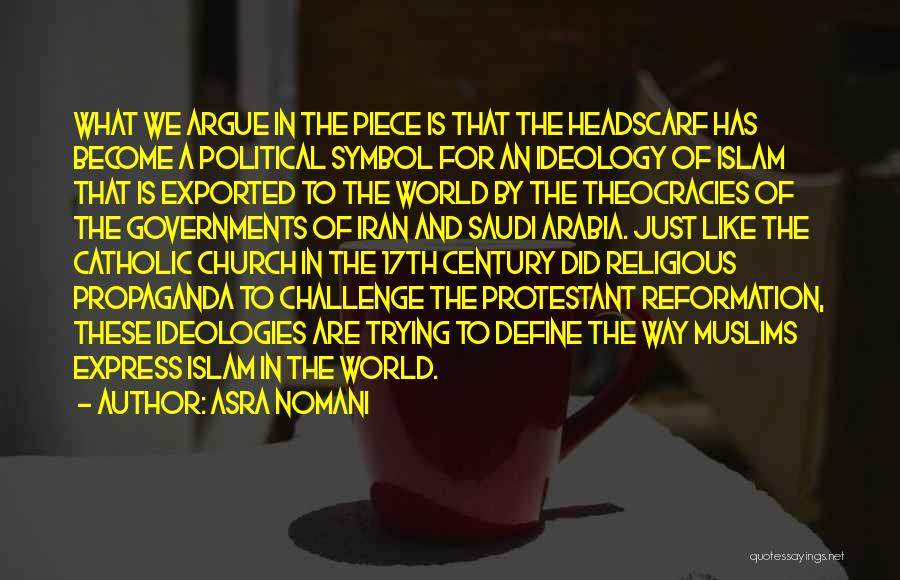
What we argue in the piece is that the headscarf has become a political symbol for an ideology of Islam that is exported to the world by the theocracies of the governments of Iran and Saudi Arabia. Just like the Catholic Church in the 17th century did religious propaganda to challenge the Protestant Reformation, these ideologies are trying to define the way Muslims express Islam in the world. — Asra Nomani
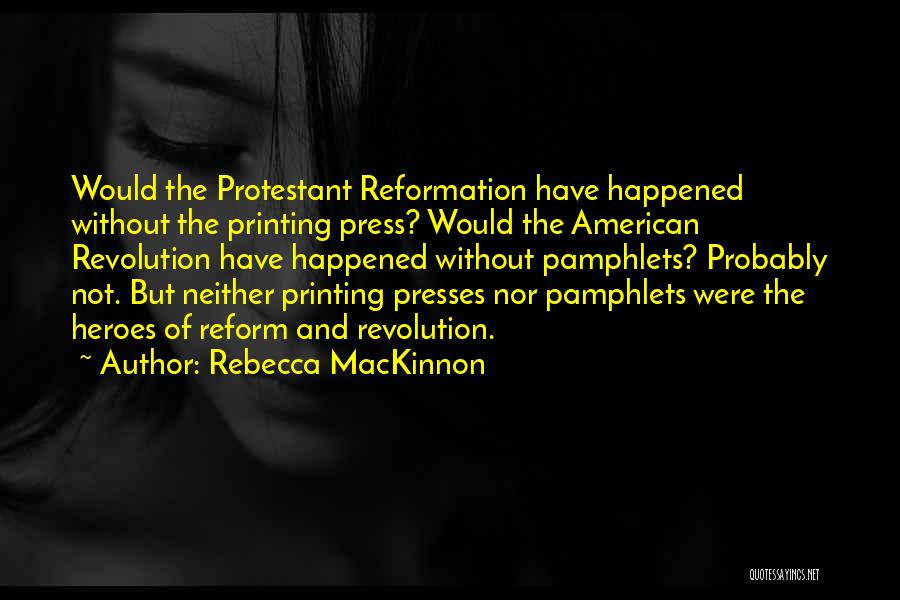
Would the Protestant Reformation have happened without the printing press? Would the American Revolution have happened without pamphlets? Probably not. But neither printing presses nor pamphlets were the heroes of reform and revolution. — Rebecca MacKinnon
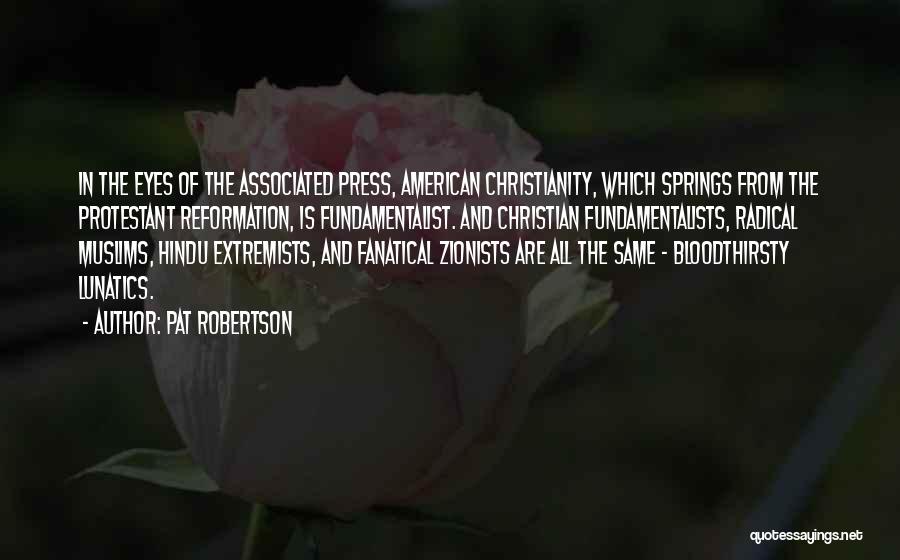
In the eyes of the Associated Press, American Christianity, which springs from the Protestant Reformation, is fundamentalist. And Christian Fundamentalists, radical Muslims, Hindu extremists, and fanatical Zionists are all the same - bloodthirsty lunatics. — Pat Robertson
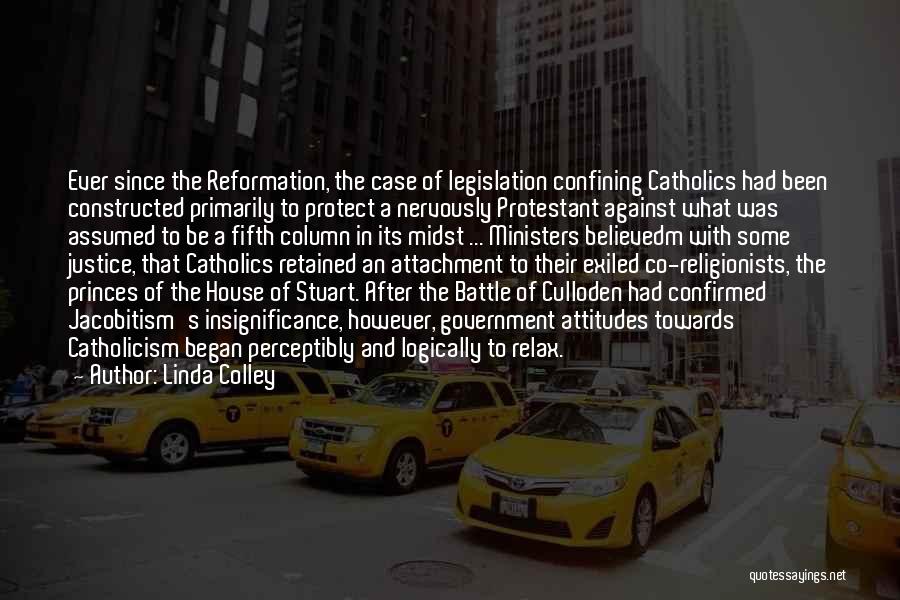
Ever since the Reformation, the case of legislation confining Catholics had been constructed primarily to protect a nervously Protestant against what was assumed to be a fifth column in its midst ... Ministers believedm with some justice, that Catholics retained an attachment to their exiled co-religionists, the princes of the House of Stuart. After the Battle of Culloden had confirmed Jacobitism's insignificance, however, government attitudes towards Catholicism began perceptibly and logically to relax. — Linda Colley
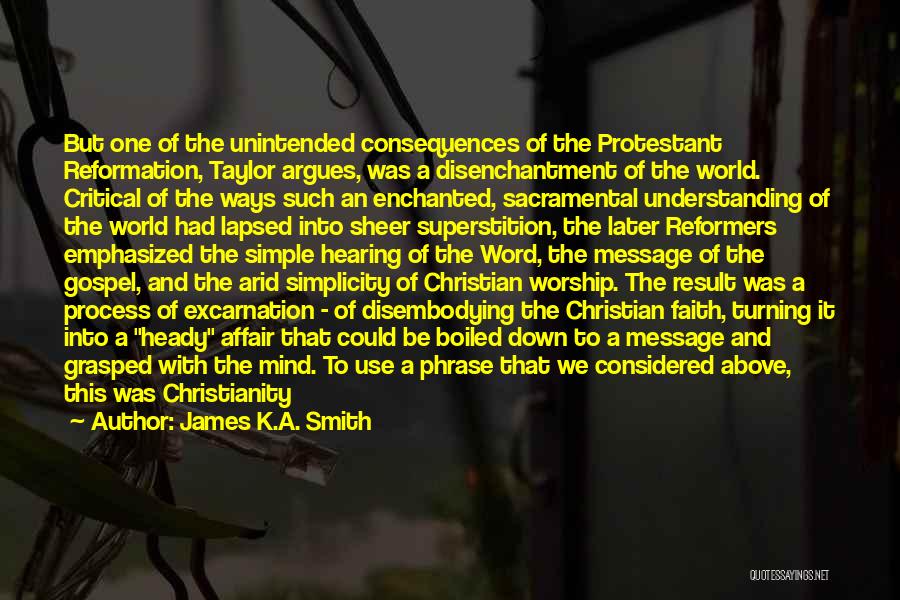
But one of the unintended consequences of the Protestant Reformation, Taylor argues, was a disenchantment of the world. Critical of the ways such an enchanted, sacramental understanding of the world had lapsed into sheer superstition, the later Reformers emphasized the simple hearing of the Word, the message of the gospel, and the arid simplicity of Christian worship. The result was a process of excarnation - of disembodying the Christian faith, turning it into a "heady" affair that could be boiled down to a message and grasped with the mind. To use a phrase that we considered above, this was Christianity reduced to something for brains-on-a-stick. The — James K.A. Smith
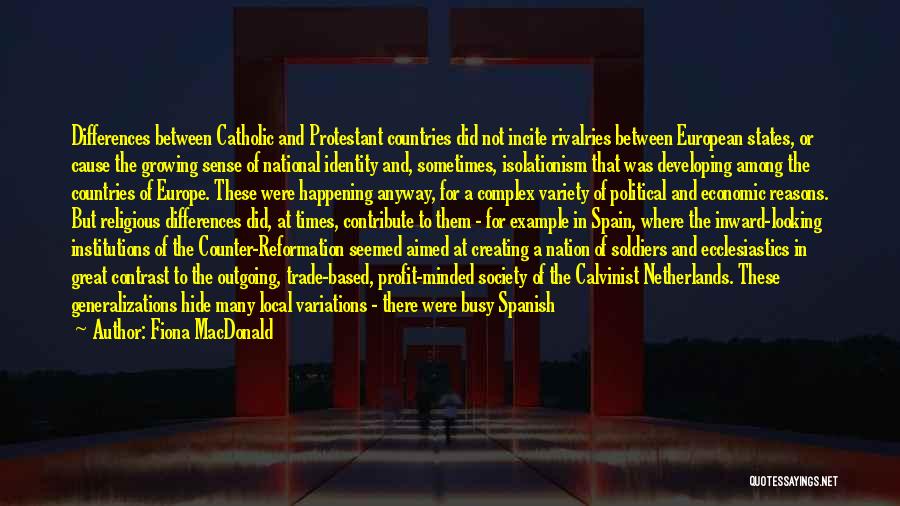
Differences between Catholic and Protestant countries did not incite rivalries between European states, or cause the growing sense of national identity and, sometimes, isolationism that was developing among the countries of Europe. These were happening anyway, for a complex variety of political and economic reasons. But religious differences did, at times, contribute to them - for example in Spain, where the inward-looking institutions of the Counter-Reformation seemed aimed at creating a nation of soldiers and ecclesiastics in great contrast to the outgoing, trade-based, profit-minded society of the Calvinist Netherlands. These generalizations hide many local variations - there were busy Spanish merchants, and contemplative, spiritual, people in many Protestant lands. But travelers across Europe remarked on the increasingly striking differences between nations. — Fiona MacDonald
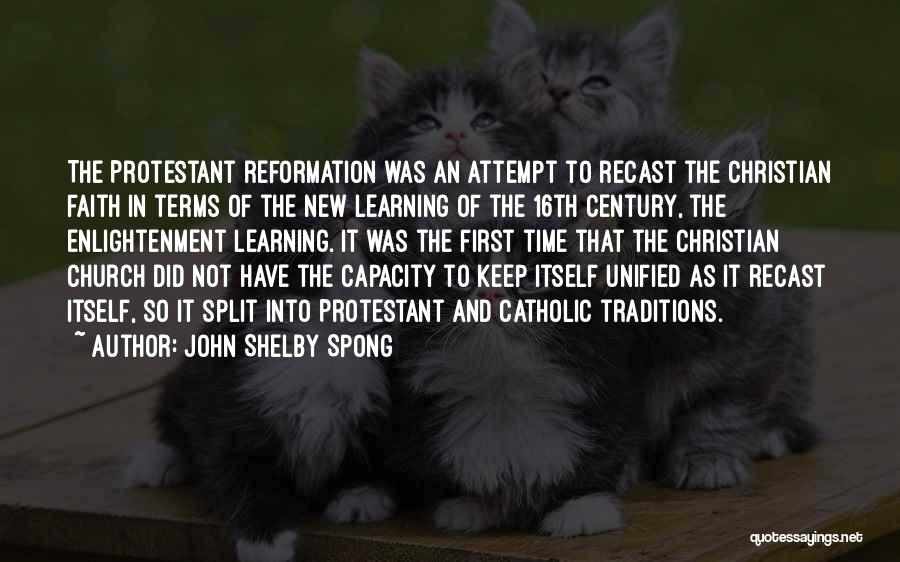
The Protestant reformation was an attempt to recast the Christian faith in terms of the new learning of the 16th century, the enlightenment learning. It was the first time that the Christian church did not have the capacity to keep itself unified as it recast itself, so it split into Protestant and Catholic traditions. — John Shelby Spong
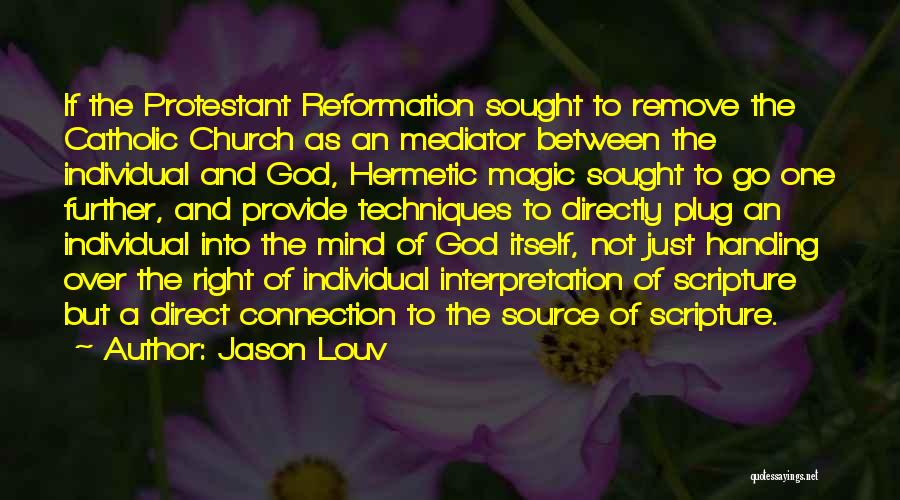
If the Protestant Reformation sought to remove the Catholic Church as an mediator between the individual and God, Hermetic magic sought to go one further, and provide techniques to directly plug an individual into the mind of God itself, not just handing over the right of individual interpretation of scripture but a direct connection to the source of scripture. — Jason Louv
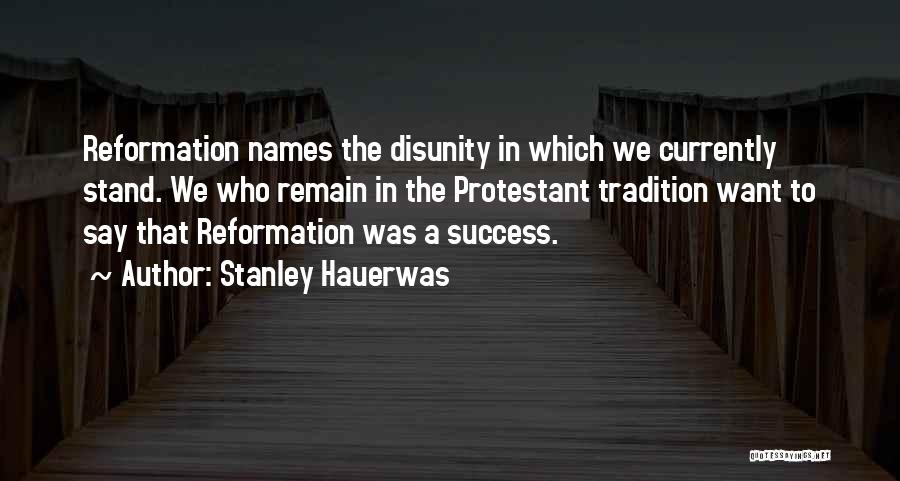
Reformation names the disunity in which we currently stand. We who remain in the Protestant tradition want to say that Reformation was a success. — Stanley Hauerwas
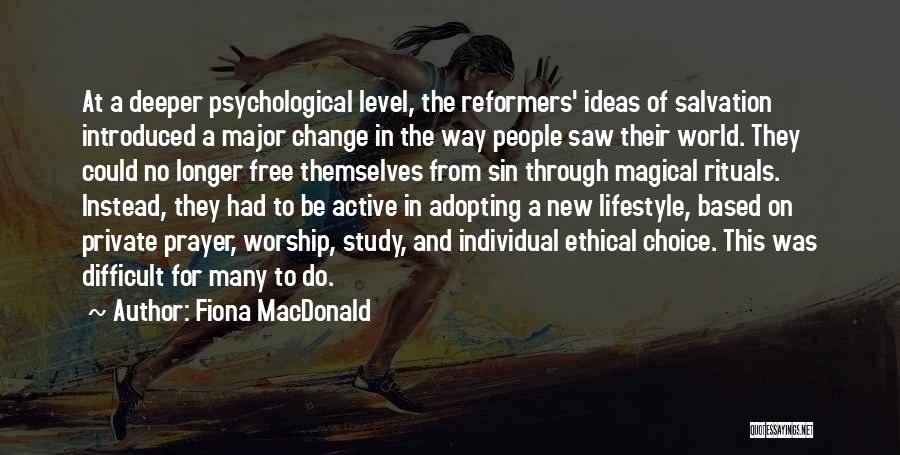
At a deeper psychological level, the reformers' ideas of salvation introduced a major change in the way people saw their world. They could no longer free themselves from sin through magical rituals. Instead, they had to be active in adopting a new lifestyle, based on private prayer, worship, study, and individual ethical choice. This was difficult for many to do. — Fiona MacDonald
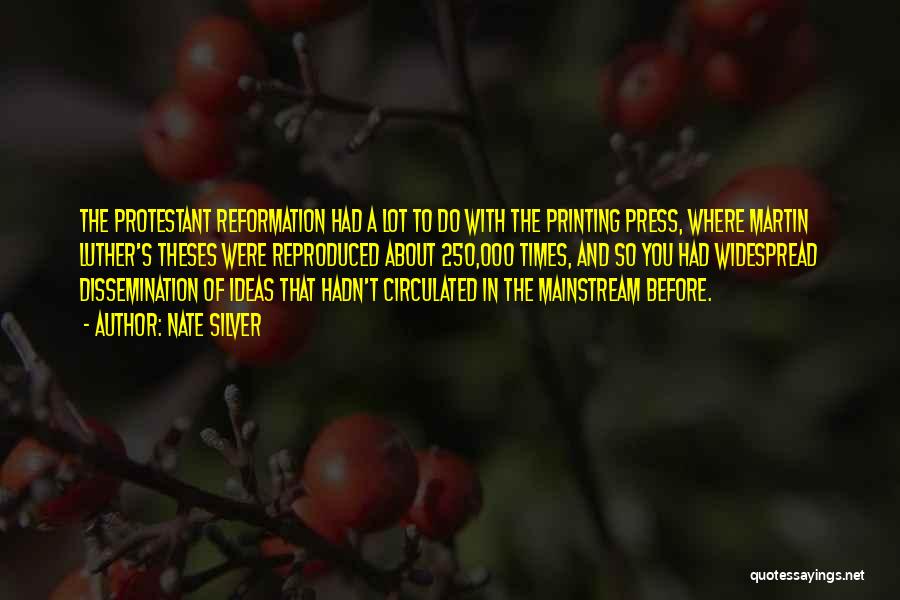
The Protestant Reformation had a lot to do with the printing press, where Martin Luther's theses were reproduced about 250,000 times, and so you had widespread dissemination of ideas that hadn't circulated in the mainstream before. — Nate Silver
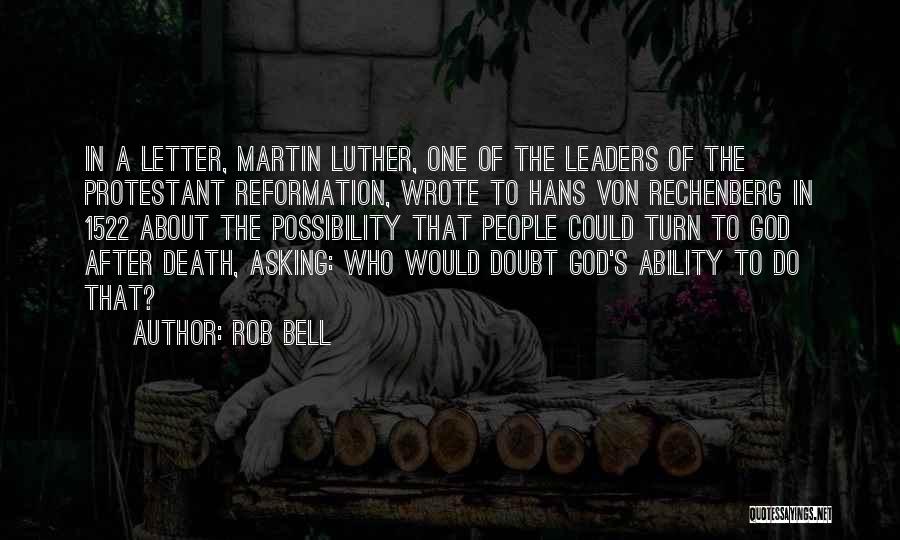
In a letter, Martin Luther, one of the leaders of the Protestant Reformation, wrote to Hans von Rechenberg in 1522 about the possibility that people could turn to God after death, asking: Who would doubt God's ability to do that? — Rob Bell
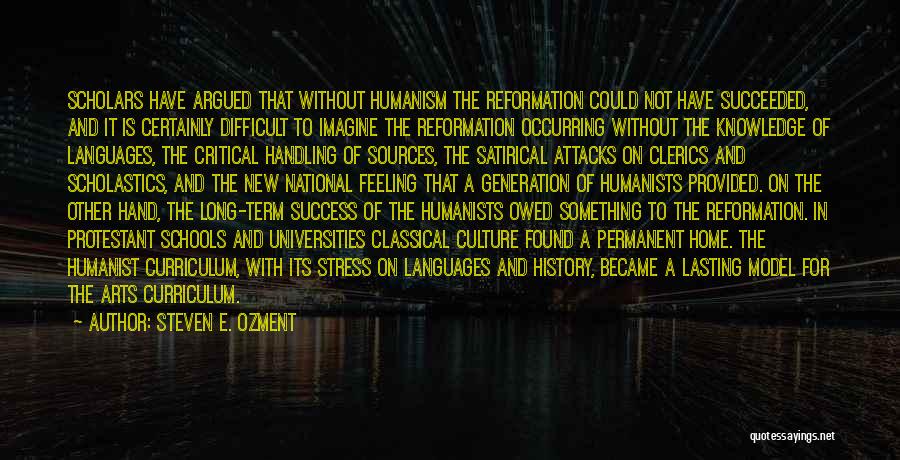
Scholars have argued that without humanism the Reformation could not have succeeded, and it is certainly difficult to imagine the Reformation occurring without the knowledge of languages, the critical handling of sources, the satirical attacks on clerics and scholastics, and the new national feeling that a generation of humanists provided. On the other hand, the long-term success of the humanists owed something to the Reformation. In Protestant schools and universities classical culture found a permanent home. The humanist curriculum, with its stress on languages and history, became a lasting model for the arts curriculum. — Steven E. Ozment
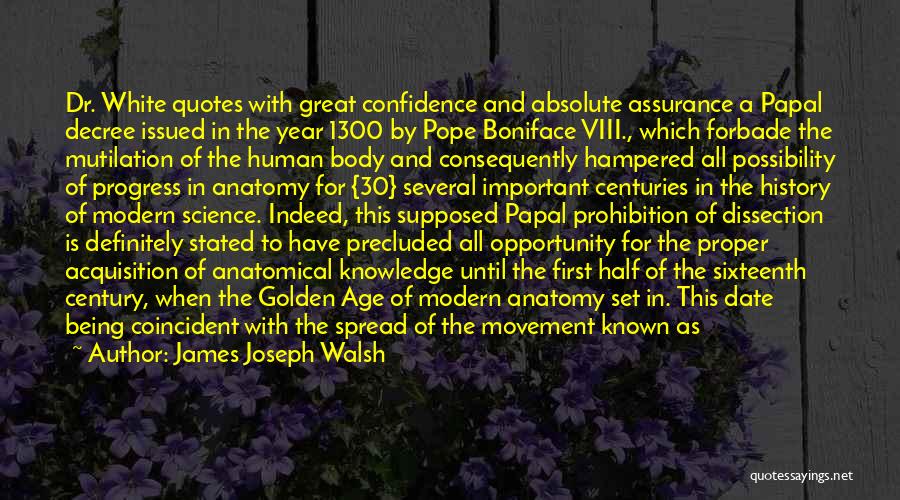
Dr. White quotes with great confidence and absolute assurance a Papal decree issued in the year 1300 by Pope Boniface VIII., which forbade the mutilation of the human body and consequently hampered all possibility of progress in anatomy for {30} several important centuries in the history of modern science. Indeed, this supposed Papal prohibition of dissection is definitely stated to have precluded all opportunity for the proper acquisition of anatomical knowledge until the first half of the sixteenth century, when the Golden Age of modern anatomy set in. This date being coincident with the spread of the movement known as the Protestant Reformation, many people at once conclude that somehow the liberality of spirit that then came into the world, and is supposed at least to have put an end to all intolerance, — James Joseph Walsh
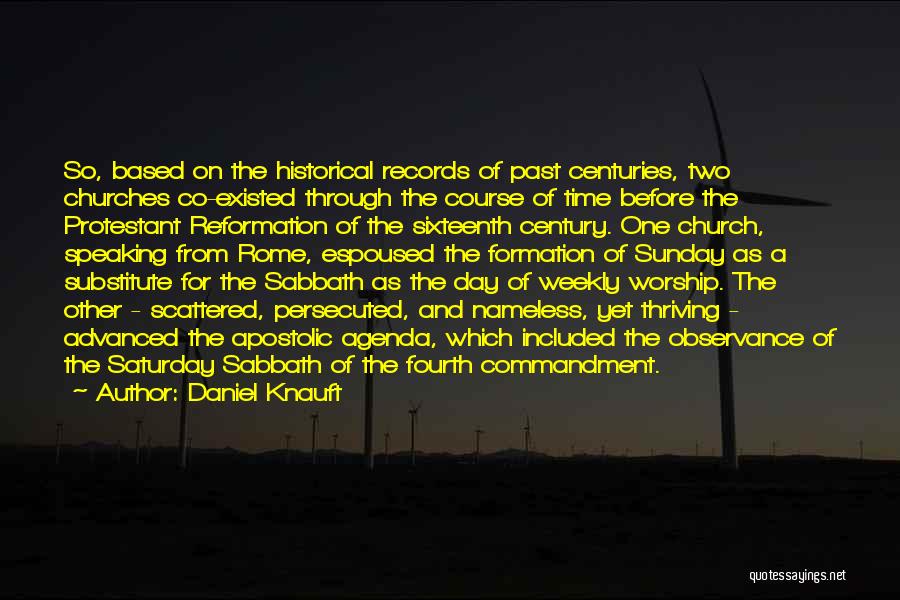
So, based on the historical records of past centuries, two churches co-existed through the course of time before the Protestant Reformation of the sixteenth century. One church, speaking from Rome, espoused the formation of Sunday as a substitute for the Sabbath as the day of weekly worship. The other - scattered, persecuted, and nameless, yet thriving - advanced the apostolic agenda, which included the observance of the Saturday Sabbath of the fourth commandment. — Daniel Knauft

Since the Protestant Reformation, it has been understood that there are two apparently opposite mistakes or errors into which you can fall so as to lose your grasp on this biblical gospel and its power. They are called "legalism," the view that we can put God in our debt and procure his blessing with our goodness, and "antinomianism," the idea that we can relate to God without obeying his Word and commands. Both words, derived from the Latin and Greek words for "law," miss a crucial aspect of how the gospel functions. — Timothy Keller

First is the danger of futility; the belief there is nothing one man or one woman can do against the enormous array of the world's ills - against misery and ignorance, injustice and violence. Yet many of the world's great movements, of thought and action, have flowed from the work of a single man. A young monk began the Protestant reformation, a young general extended an empire from Macedonia to the borders of the earth, and a young woman reclaimed the territory of France. It was a young Italian explorer who discovered the New World, and 32-year-old Thomas Jefferson who proclaimed that all men are created equal. "Give me a place to stand," said Archimedes, "and I will move the world." These men moved the world, and so can we all. — Robert F. Kennedy
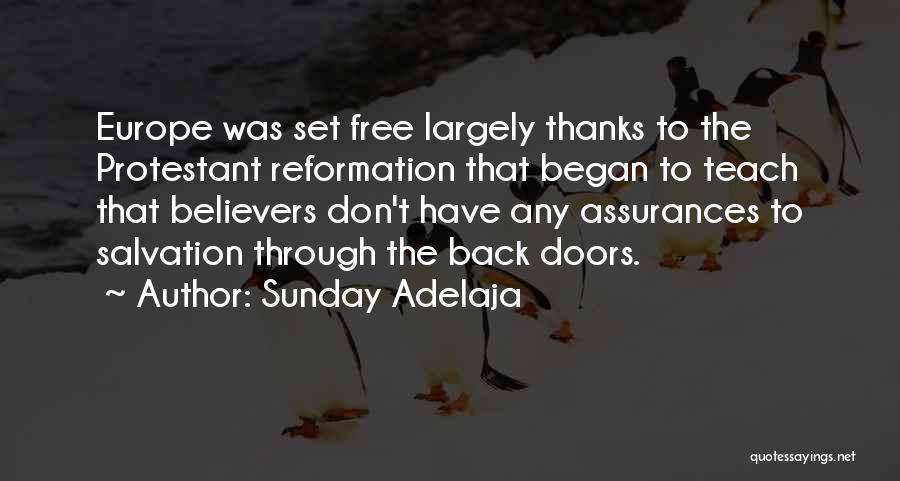
Europe was set free largely thanks to the Protestant reformation that began to teach that believers don't have any assurances to salvation through the back doors. — Sunday Adelaja
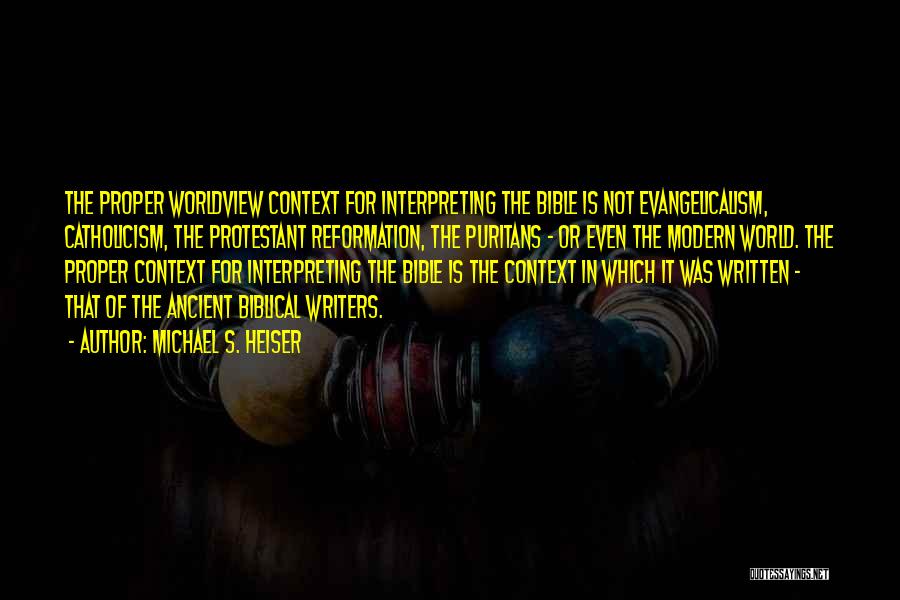
The proper worldview context for interpreting the Bible is not evangelicalism, Catholicism, the Protestant Reformation, the Puritans - or even the modern world. The proper context for interpreting the Bible is the context in which it was written - that of the ancient biblical writers. — Michael S. Heiser
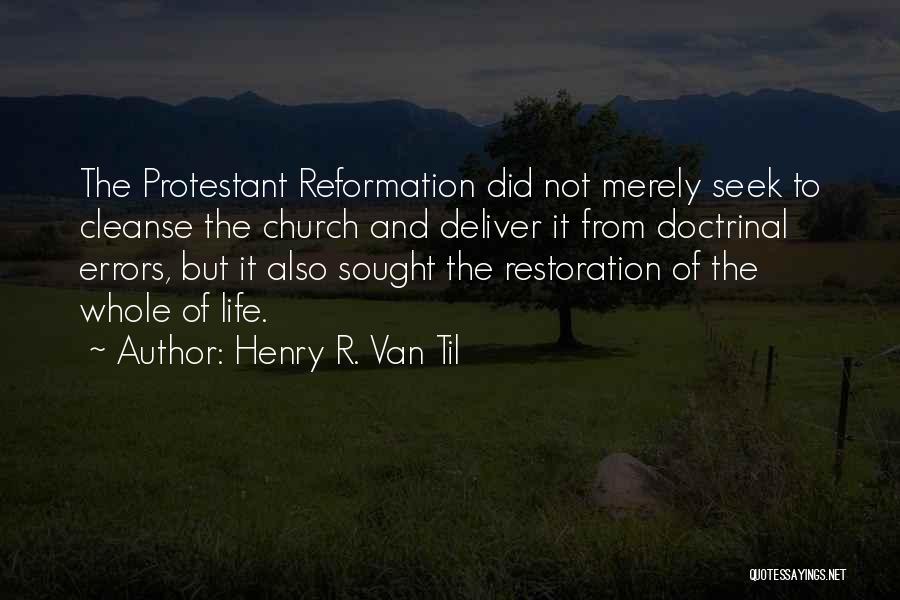
The Protestant Reformation did not merely seek to cleanse the church and deliver it from doctrinal errors, but it also sought the restoration of the whole of life. — Henry R. Van Til
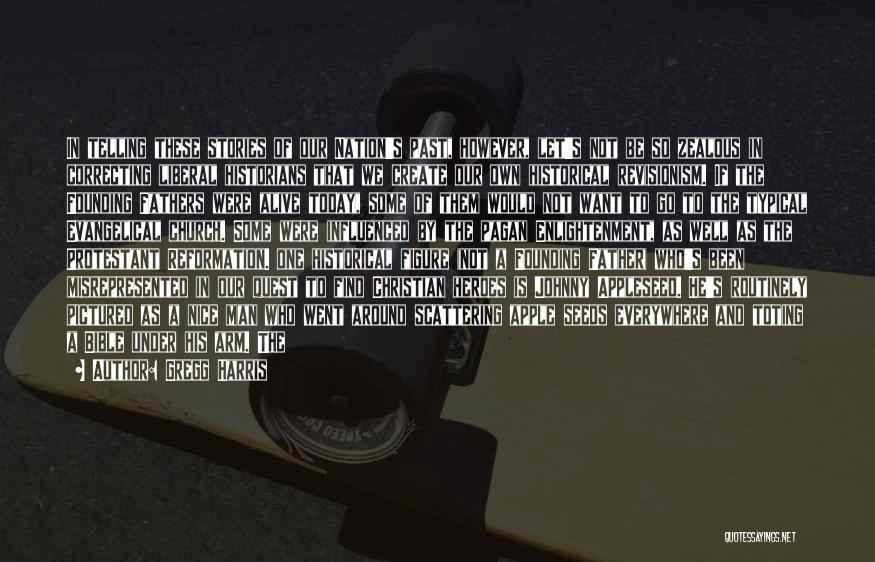
In telling these stories of our Nation's past, however, let's not be so zealous in correcting liberal historians that we create our own historical revisionism. If the Founding Fathers were alive today, some of them would not want to go to the typical Evangelical church. Some were influenced by the pagan Enlightenment, as well as the Protestant Reformation. one historical figure (not a Founding Father) who's been misrepresented in our quest to find Christian heroes is Johnny Appleseed. He's routinely pictured as a nice man who went around scattering apple seeds everywhere and toting a Bible under his arm. The fact is, Johnny Appleseed was a missionary for Swedenbogrism, a spiritist cult. This cult taught many false doctrines and claimed that the writings of the Apostle Paul had no place in the Bible. When a child hears that Johnny Appleseed is a 'godly hero' and then discovers that he was in fact a cult member, what will he logically conclude about everything he's been taught? — Gregg Harris
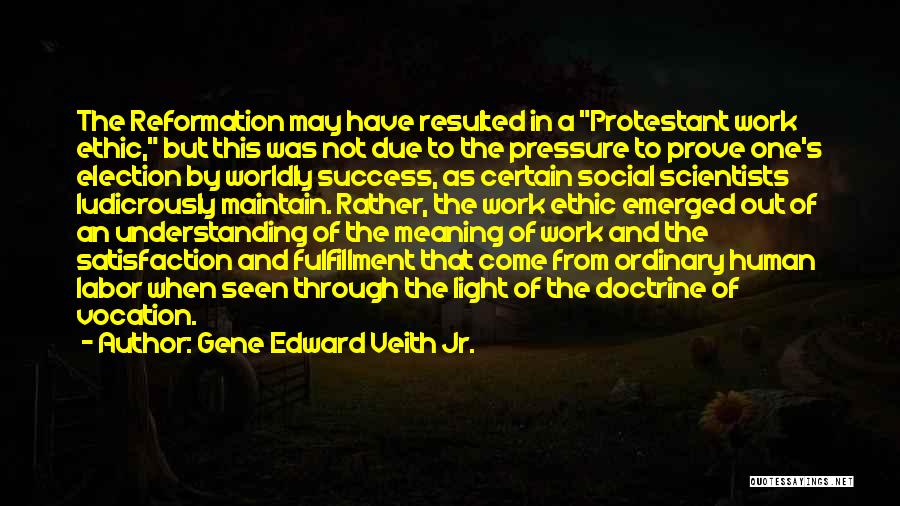
The Reformation may have resulted in a "Protestant work ethic," but this was not due to the pressure to prove one's election by worldly success, as certain social scientists ludicrously maintain. Rather, the work ethic emerged out of an understanding of the meaning of work and the satisfaction and fulfillment that come from ordinary human labor when seen through the light of the doctrine of vocation. — Gene Edward Veith Jr.

The reformation of Christianity was a terrifying process, but it was not, as it has so often been presented, a collision between Protestant reform and Catholic intransigence. Rather, the Christian Reformation was an argument over the future of the faith - a violent, bloody argument that engulfed Europe in devastation and war for more than a century. — Reza Aslan
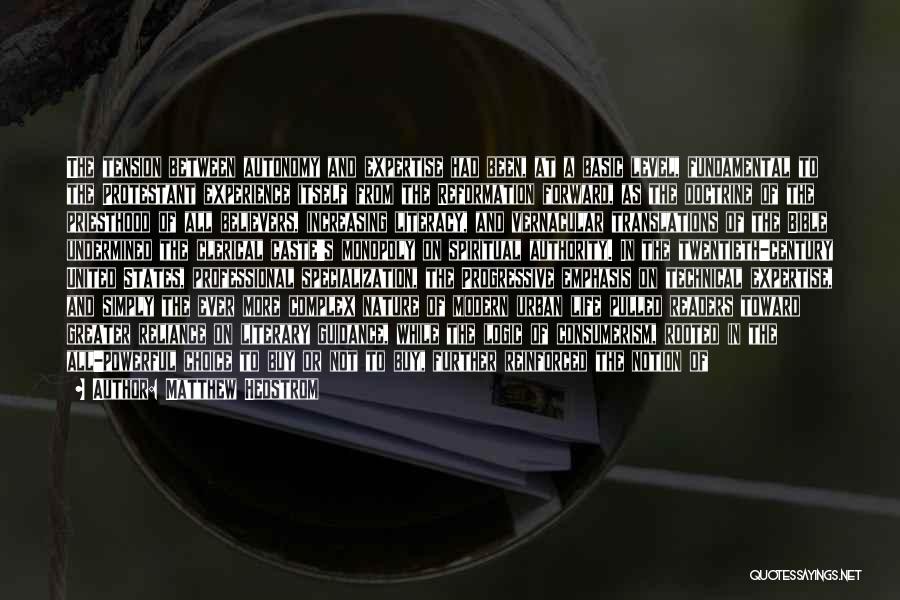
The tension between autonomy and expertise had been, at a basic level, fundamental to the Protestant experience itself from the Reformation forward, as the doctrine of the priesthood of all believers, increasing literacy, and vernacular translations of the Bible undermined the clerical caste's monopoly on spiritual authority. In the twentieth-century United States, professional specialization, the Progressive emphasis on technical expertise, and simply the ever more complex nature of modern urban life pulled readers toward greater reliance on literary guidance, while the logic of consumerism, rooted in the all-powerful choice to buy or not to buy, further reinforced the notion of reader autonomy. — Matthew Hedstrom





